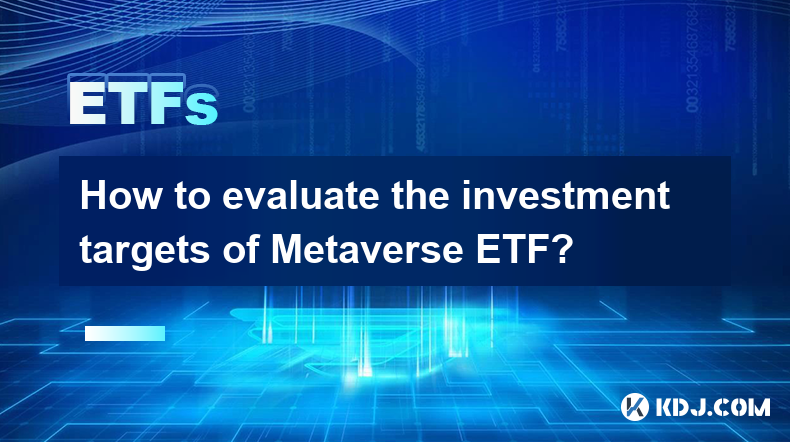-
 Bitcoin
Bitcoin $90,768.7638
3.12% -
 Ethereum
Ethereum $1,694.6810
4.36% -
 Tether USDt
Tether USDt $1.0007
0.04% -
 XRP
XRP $2.1477
1.67% -
 BNB
BNB $610.2681
1.01% -
 Solana
Solana $145.1164
4.77% -
 USDC
USDC $0.9999
-0.01% -
 Dogecoin
Dogecoin $0.1711
6.33% -
 TRON
TRON $0.2465
1.13% -
 Cardano
Cardano $0.6542
3.11% -
 Chainlink
Chainlink $13.8160
3.42% -
 Avalanche
Avalanche $21.7042
5.12% -
 UNUS SED LEO
UNUS SED LEO $8.9784
-1.69% -
 Stellar
Stellar $0.2575
-0.17% -
 Sui
Sui $2.3973
6.89% -
 Shiba Inu
Shiba Inu $0.0...01299
3.42% -
 Hedera
Hedera $0.1763
3.37% -
 Toncoin
Toncoin $2.9676
-0.41% -
 Bitcoin Cash
Bitcoin Cash $359.7154
4.17% -
 Litecoin
Litecoin $82.4828
3.44% -
 Hyperliquid
Hyperliquid $18.4002
2.22% -
 Polkadot
Polkadot $3.8756
-0.35% -
 Dai
Dai $1.0000
0.01% -
 Bitget Token
Bitget Token $4.4973
0.74% -
 Ethena USDe
Ethena USDe $0.9997
0.03% -
 Pi
Pi $0.6374
0.18% -
 Monero
Monero $219.2679
2.44% -
 Pepe
Pepe $0.0...08404
6.38% -
 Uniswap
Uniswap $5.5798
2.95% -
 Aptos
Aptos $5.0875
0.19%
How to evaluate the investment targets of Metaverse ETF?
Metaverse ETFs offer diversified exposure to a sector poised for substantial growth, but investors should consider key factors like industry trends, fundamental strength, valuation metrics, and potential risks.
Jan 09, 2025 at 03:51 am

Key Points:
- Understanding the Metaverse Sector: Defining the Metaverse, its various components, and potential use cases.
- ETF Structure and Composition: Examining the structure of Metaverse ETFs, their investment strategies, and underlying holdings.
- Market Analysis and Trends: Identifying industry trends, competitive landscapes, and potential growth areas in the Metaverse sector.
- Fundamental Factors: Evaluating Metaverse companies based on financial performance, IP ownership, and team expertise.
- Valuation Metrics: Assessing Metaverse ETFs using appropriate valuation metrics, such as price-to-book (P/B) and price-to-sales (P/S) ratios.
How to Evaluate the Investment Targets of Metaverse ETF?
1. Understanding the Metaverse Sector
The Metaverse encompasses a vast and evolving ecosystem of virtual and augmented reality experiences, digital assets, social interactions, and economic opportunities. Metaverse companies operate in various segments, including virtual worlds, gaming, NFTs, virtual assets, and the underlying infrastructure. Understanding the sector's dynamics, technological advancements, and target markets is essential for evaluating investment targets.
2. ETF Structure and Composition
Metaverse ETFs provide diversified exposure to the Metaverse sector by investing in a basket of underlying stocks. ETFs differ in their investment strategies, targeting different sub-sectors of the Metaverse. Key factors to consider include:
- Investment Universe: The types of companies included in the ETF, such as pure-play Metaverse companies, technology giants, or companies with Metaverse-related business lines.
- Methodology: The rules and criteria used to select and weight the holdings, such as market capitalization, revenue exposure, or a combination of qualitative and quantitative factors.
3. Market Analysis and Trends
Assessing market trends and competitive landscapes is crucial for identifying potential winners in the Metaverse sector. Key indicators to monitor include:
- Industry Growth: The overall growth rate of the Metaverse sector and projections for future expansion.
- Competitive Dynamics: The number and strength of competitors, market share distribution, and potential for new entrants.
- Barriers to Entry: The barriers companies face in entering the Metaverse market, such as technological expertise, existing IP, and regulatory hurdles.
4. Fundamental Factors
Evaluating the financial health and prospects of Metaverse companies is essential for long-term investment success. Fundamental analysis involves examining:
- Financial Performance: Key financial metrics, such as revenue growth, profitability, and balance sheet health.
- Intellectual Property: The strength and protection of the company's intellectual property (IP), including trademarks, patents, and copyrights.
- Team Expertise: The experience and track record of the company's management team in the Metaverse and related industries.
5. Valuation Metrics
Determining whether Metaverse ETFs are fairly valued or over/undervalued requires using appropriate valuation metrics. Common metrics include:
- Price-to-Book (P/B) Ratio: Compares the ETF's market price to the book value of its underlying holdings.
- Price-to-Sales (P/S) Ratio: Compares the ETF's market price to the total sales of its underlying holdings.
- Trailing Price-to-Earnings (P/E) Ratio: Compares the ETF's market price to the trailing earnings of its underlying holdings.
FAQs:
Q1. What are the different types of Metaverse ETFs available?
A1. Metaverse ETFs can be classified based on their investment strategies and targeted sub-sectors. Some common types include:
- Broad-Based Metaverse ETFs: Invest in a diversified range of Metaverse companies across multiple sectors.
- Virtual World ETFs: Focus on companies developing and operating virtual worlds, including social platforms, gaming environments, and virtual economies.
- NFT and Blockchain ETFs: Emphasize investments in companies involved in NFTs (non-fungible tokens) and blockchain infrastructure.
Q2. How do I assess the risk of Metaverse ETFs?
A2. Metaverse ETFs carry inherent risks due to the volatility of the underlying sector and potential execution risks. Factors to consider include:
- Market Volatility: The Metaverse sector is relatively new and evolving, which can lead to significant price fluctuations.
- Execution Risk: ETFs may not always track their target benchmark perfectly, resulting in tracking errors.
- Concentration Risk: Some ETFs may concentrate their investments in a few large holdings, increasing exposure to individual company risks.
Q3. What is the investment horizon for Metaverse ETFs?
A3. Metaverse ETFs are generally considered long-term investments. The underlying sector is expected to evolve and mature over time. Investors should be prepared to hold these ETFs for several years to capture potential growth opportunities.
Disclaimer:info@kdj.com
The information provided is not trading advice. kdj.com does not assume any responsibility for any investments made based on the information provided in this article. Cryptocurrencies are highly volatile and it is highly recommended that you invest with caution after thorough research!
If you believe that the content used on this website infringes your copyright, please contact us immediately (info@kdj.com) and we will delete it promptly.
- Dogecoin (DOGE) Consolidates Within a Symmetrical Triangle, Breakout or Decline on the Cards
- 2025-04-23 00:00:53
- BitGo Integrates sBTC, Expanding Institutional Participation in Decentralized Finance
- 2025-04-23 00:00:53
- Fartcoin (FARTCOIN) Price Prediction 2025-2030: Will FARTCOIN Price Hit $5 Soon?
- 2025-04-22 23:55:12
- Integral Ad Science Holding Corp (NASDAQ: IAS) closed at $6.38, down -2.15%
- 2025-04-22 23:55:12
- Dogecoin Faces Pressure as Elon Musk's Federal Role Nears an End
- 2025-04-22 23:50:12
- MANA Token Price Breaks Long-Term Resistance, Surging 18%
- 2025-04-22 23:50:12
Related knowledge

What role does SEC play in Bitcoin ETF approval?
Feb 25,2025 at 06:48am
Key Points:SEC's Role in Bitcoin ETF Approval ProcessHistorical Efforts to Establish a Bitcoin ETFSEC's Criteria for Bitcoin ETF ApprovalPotential Impact of a Bitcoin ETF on the Cryptocurrency MarketTimeline and Outlook for Bitcoin ETF ApprovalArticle:SEC Play in Bitcoin ETF ApprovalThe United States Securities and Exchange Commission (SEC) plays a crit...

Who is eligible to issue Bitcoin ETFs?
Feb 25,2025 at 11:13am
Key Points:Only regulated financial institutions with the necessary expertise and infrastructure are eligible to issue Bitcoin ETFs.The Securities and Exchange Commission (SEC) has not yet approved any spot Bitcoin ETFs, but has approved several futures-based ETFs.Applicants must meet stringent requirements, including having a strong track record and su...

What impact does Bitcoin ETF have on the market?
Feb 25,2025 at 11:37am
Key Points:Introduction to Bitcoin ETFs and their role in the cryptocurrency marketHistorical development and performance of Bitcoin ETFsPotential benefits of Bitcoin ETFs for investors and the marketRisks and limitations associated with Bitcoin ETFsRegulatory considerations and their impact on Bitcoin ETFsArticle:Introduction to Bitcoin ETFsBitcoin exc...

Which investors are Bitcoin ETFs suitable for?
Feb 27,2025 at 04:01pm
Key Points:Understanding Bitcoin ETFsBenefits of Bitcoin ETFsSuitability of Bitcoin ETFs for Different InvestorsAssessing Risk Tolerance and Investment GoalsConsidering Short-Term and Long-Term StrategiesExamining Tax ImplicationsSeeking Professional AdviceUnderstanding Bitcoin ETFsBitcoin exchange-traded funds (ETFs) are investment vehicles that track ...

What is the administrative expenses of Bitcoin ETFs?
Feb 26,2025 at 12:24am
Key Points:Administrative expenses are a crucial factor to consider when evaluating Bitcoin ETFs.These expenses can significantly impact the performance of the fund and ultimately the investor's returns.Understanding the various components of administrative expenses is essential for informed decision-making.Comparing administrative expenses across diffe...

What are the fees for purchasing Bitcoin ETFs?
Feb 27,2025 at 07:13pm
Key Points:Bitcoin exchange-traded funds (ETFs) are a cost-effective and regulated way to gain exposure to Bitcoin.Fees associated with Bitcoin ETF purchases vary depending on the platform, trading volume, and account type.It is essential to evaluate fee structures carefully to optimize investment returns.Fees Associated with Purchasing Bitcoin ETFs1. B...

What role does SEC play in Bitcoin ETF approval?
Feb 25,2025 at 06:48am
Key Points:SEC's Role in Bitcoin ETF Approval ProcessHistorical Efforts to Establish a Bitcoin ETFSEC's Criteria for Bitcoin ETF ApprovalPotential Impact of a Bitcoin ETF on the Cryptocurrency MarketTimeline and Outlook for Bitcoin ETF ApprovalArticle:SEC Play in Bitcoin ETF ApprovalThe United States Securities and Exchange Commission (SEC) plays a crit...

Who is eligible to issue Bitcoin ETFs?
Feb 25,2025 at 11:13am
Key Points:Only regulated financial institutions with the necessary expertise and infrastructure are eligible to issue Bitcoin ETFs.The Securities and Exchange Commission (SEC) has not yet approved any spot Bitcoin ETFs, but has approved several futures-based ETFs.Applicants must meet stringent requirements, including having a strong track record and su...

What impact does Bitcoin ETF have on the market?
Feb 25,2025 at 11:37am
Key Points:Introduction to Bitcoin ETFs and their role in the cryptocurrency marketHistorical development and performance of Bitcoin ETFsPotential benefits of Bitcoin ETFs for investors and the marketRisks and limitations associated with Bitcoin ETFsRegulatory considerations and their impact on Bitcoin ETFsArticle:Introduction to Bitcoin ETFsBitcoin exc...

Which investors are Bitcoin ETFs suitable for?
Feb 27,2025 at 04:01pm
Key Points:Understanding Bitcoin ETFsBenefits of Bitcoin ETFsSuitability of Bitcoin ETFs for Different InvestorsAssessing Risk Tolerance and Investment GoalsConsidering Short-Term and Long-Term StrategiesExamining Tax ImplicationsSeeking Professional AdviceUnderstanding Bitcoin ETFsBitcoin exchange-traded funds (ETFs) are investment vehicles that track ...

What is the administrative expenses of Bitcoin ETFs?
Feb 26,2025 at 12:24am
Key Points:Administrative expenses are a crucial factor to consider when evaluating Bitcoin ETFs.These expenses can significantly impact the performance of the fund and ultimately the investor's returns.Understanding the various components of administrative expenses is essential for informed decision-making.Comparing administrative expenses across diffe...

What are the fees for purchasing Bitcoin ETFs?
Feb 27,2025 at 07:13pm
Key Points:Bitcoin exchange-traded funds (ETFs) are a cost-effective and regulated way to gain exposure to Bitcoin.Fees associated with Bitcoin ETF purchases vary depending on the platform, trading volume, and account type.It is essential to evaluate fee structures carefully to optimize investment returns.Fees Associated with Purchasing Bitcoin ETFs1. B...
See all articles























































































